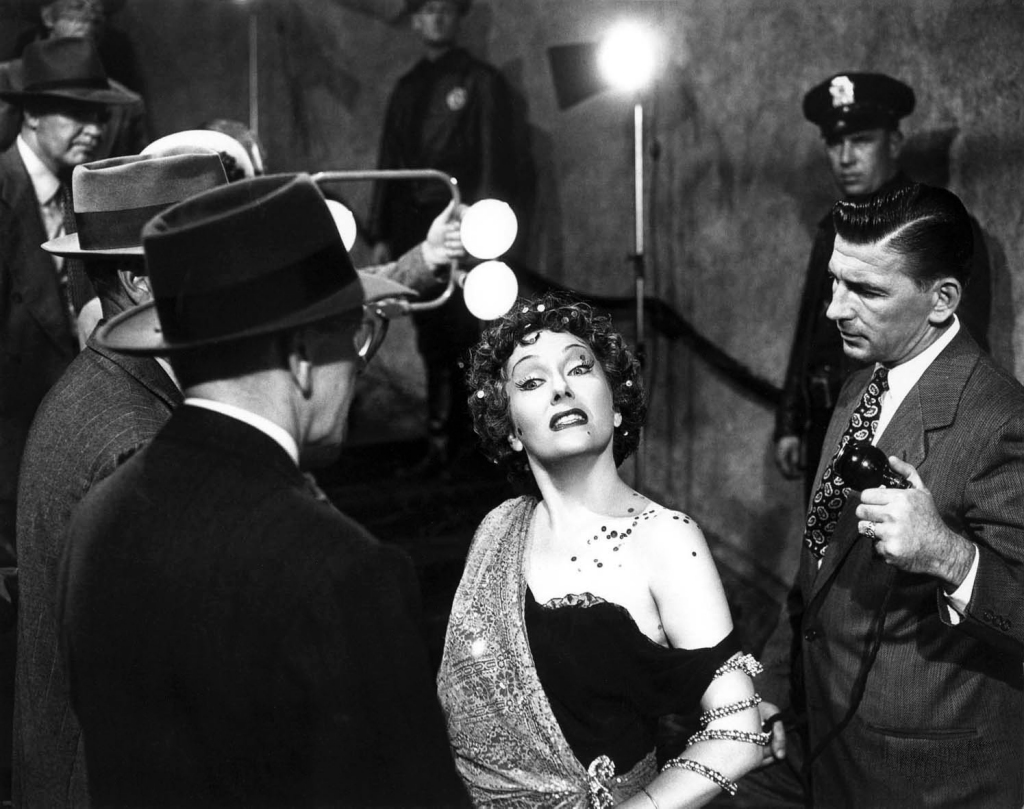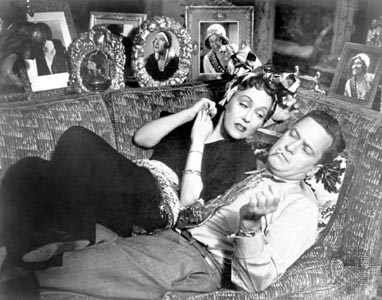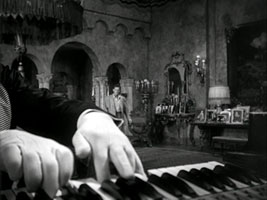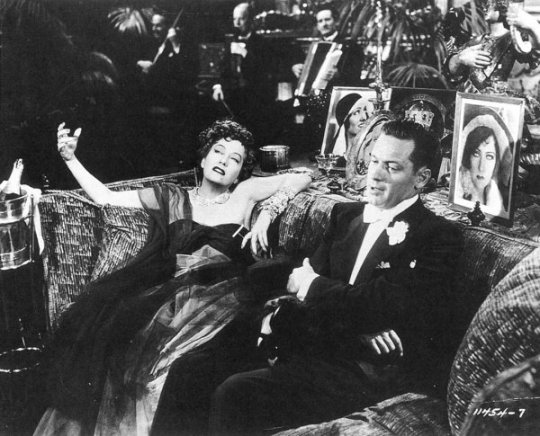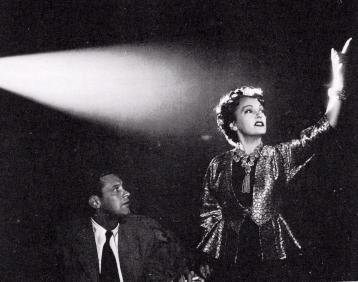|
In Billy Wilder’s Sunset Boulevard (1950),
Norma Desmond (played by Gloria Swanson,
herself a star of the silent era), the ageing former movie queen of the silent era, is the
“spider woman” who traps the young Joe Gillis, an unsuccessful, nearly broke, Hollywood
screenwriter. The film begins with the dead Joe’s voice-over as he recounts his own tale of doom.
It is dawn, and the police, that conventional emblem of patriarchy, investigate a murder in a posh
mansion on Sunset Boulevard. We see the dead Joe floating, face down, on a swimming pool. The dead man
informs us, “The poor dope. He always wanted a pool. Well, in the end, he got himself a pool; only the price
turned out to be a little high.”
He then proceeds to narrate his story through a flashback: in a bid to save his car from being towed
away by the finance company that he owes money, Joe unknowingly landed himself in a much worse situation
by ending up on Norma’s driveway and, subsequently, by becoming Norma’s prey. Norma is the quintessential
“spider woman” of film noir; not only does she weave a web over Joe and dominate him, but also she weaves
her spell over the narrative and visually dominates the film. Ultimately, Joe is unable to escape the web
he finds himself enmeshed in and finds his ultimate salvation only in death. When Norma realizes that she
cannot possess Joe, she shoots him dead.
Joe’s voice-over guides our perceptions of Norma, whose narcissistic and dominating nature is disturbing.
The mansion is filled with Norma’s portraits of her younger days when she ruled the box office. Those days of
fame haunt her now as she constantly fantasizes about staging a grand return to the world of stardom.
She lives with her butler, actually her former husband, Max, the director of many of her films, who is
relegated to the domestic sphere. Norma commands Joe to edit the script of Salome, a magnum opus that
she will act in, a film that she imagines will be directed by her favorite, the legendary Cecil DeMille.
Though a bit wary, the penniless Joe humors her. “I felt kind of pleased with the way I had handled the
situation. I dropped the hook and she snapped at it.” At this point, little does he realize the imprisonment
that awaits him.
When Joe tells her, “You used to be big,” she defiantly retorts, “I am big, it’s the pictures that got small.”
She constantly hovers around Joe who is virtually on house arrest in the “grim Sunset castle.” She interferes
in his work of editing the film script that will herald her comeback to filmdom. She is obsessed with herself,
as is evident from the pleasure she derives in watching her own self on her private screen at the mansion in
the company of her victim.
Indeed, Norma has a vampire-like quality about her, and this is enhanced in her
visual presentation. She wears dark glasses inside an already dark mansion. As Joe reveals to us, “I felt caught,
like the cigarette in that contraption on her finger.” We see Norma for the first time as a silhouette and,
later, hear her high-pitched voice directing Max to prepare for her dead chimpanzee’s funeral.
She is almost always dressed in black and is presented in the dark aura of the house and its queer clutter.
The house is always dimly lit, with the curtains drawn. Norma’s space is a claustrophobic space.
In contrast, the other female character in the film, the self-effacing young Betty, with whom Joe Gillis
falls in love, is placed in the safer surroundings of the brightly-lit outside world. Betty is an
aspiring screenwriter too, but as Joe Gillis informs us, she is reassuring to him because she
“smells like freshly laundered new handkerchiefs” and is supportive of his career. She is in stark opposition to
Norma who reeks of expensive perfume, tube roses, is full of herself, and dreams of her own career.
Betty is the good woman, calling him back to the outside world, but it is too late. Joe finds he is caught
in the icy cold grip of the sexually aggressive Norma, who will let him go only at the expense of his own life.
Norma Desmond's famous last lines:
"And I promise you I'll never desert you again because after 'Salome' we'll make another picture and
another picture. You see, this is my life! It always will be! Nothing else! Just us, the cameras, and
those wonderful people out there in the dark!... All right, Mr. DeMille, I'm ready for my close-up."
Return to Top ·
Go to Home page ·
Back page ·
Next page
|

